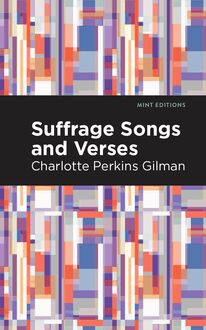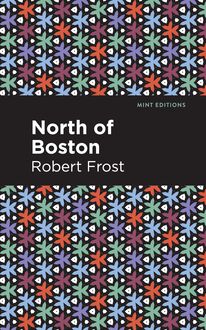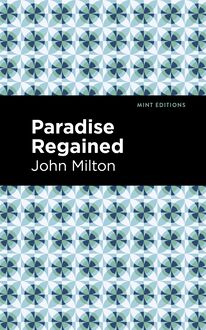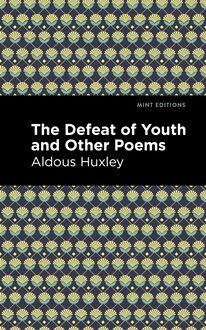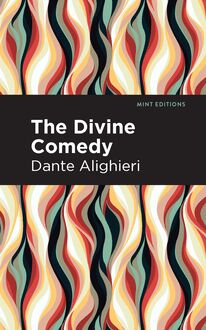-
 Univers
Univers
-
 Ebooks
Ebooks
-
 Livres audio
Livres audio
-
 Presse
Presse
-
 Podcasts
Podcasts
-
 BD
BD
-
 Documents
Documents
-
- Cours
- Révisions
- Ressources pédagogiques
- Sciences de l’éducation
- Manuels scolaires
- Langues
- Travaux de classe
- Annales de BEP
- Etudes supérieures
- Maternelle et primaire
- Fiches de lecture
- Orientation scolaire
- Méthodologie
- Corrigés de devoir
- Annales d’examens et concours
- Annales du bac
- Annales du brevet
- Rapports de stage
La lecture à portée de main
Vous pourrez modifier la taille du texte de cet ouvrage
Découvre YouScribe en t'inscrivant gratuitement
Je m'inscrisDécouvre YouScribe en t'inscrivant gratuitement
Je m'inscrisEn savoir plus
Vous pourrez modifier la taille du texte de cet ouvrage
En savoir plus

Description
Beginning shortly after Satan was banished to Hell, Lucifer, the fallen angel, delivers a persuasive speech to organize his followers after they were defeated by God’s army. As he attempts to rejuvenate the enthusiasm of his demons, Satan discovers his insatiable need for revenge. Empowered by his follower’s support, Satan realizes that the best way to achieve his desire is through the corruption of God’s most treasured creation—humankind. Determined to undermine God one more time, Satan journeys to Earth, where he finds Adam and Eve living in the Garden of Eden. Described as paradise on Earth, the Garden of Eden provides everything Eve and Adam need. The couple live harmoniously, and enjoy a healthy emotional and sexual relationship. However, when Satan arrives and persuades them otherwise, life isn’t just changed for them, but for all of humankind. However, Adam and Eve do not realize their mistake right away, as their life seems as pleasant as ever and are able to appease their every desire. But when God confronts them for what they’d done, Adam and Eve become desperate for forgiveness, and Satan relishes in the success of his plan.
Following the Christian origin myth of man, Paradise Lost by John Milton is an immense epic poem written in blank verse and separated into ten sections. With elaborate description and elevated language, Paradise Lost depicts new, thought-provoking perspectives of a well-known story. Through these elaborate perspectives and the expanded narrative, Milton intended to “justify” God’s actions to men. Featuring exciting depictions of the Angelic War, Satan’s defeat, and the life of Eve and Adam before and after their fall, John Milton’s legendary poem is compelling and magnificent. Regarded as a superior work of English literature, Paradise Lost is an exquisite classic.
This edition of Paradise Lost by John Milton is now presented in an easy-to-read font and features a striking new cover design. With these accommodations, Paradise Lost is restored to modern standards while preserving its original mastery, providing an accessible and desirable experience for contemporary readers.
Sujets
Informations
| Publié par | Mint Editions |
| Date de parution | 16 février 2021 |
| Nombre de lectures | 0 |
| EAN13 | 9781513279350 |
| Langue | English |
Informations légales : prix de location à la page 0,0500€. Cette information est donnée uniquement à titre indicatif conformément à la législation en vigueur.
Extrait
Paradise Lost
John Milton
Paradise Lost was first published in 1667.
This edition published by Mint Editions 2021.
ISBN 9781513279251 | E-ISBN 9781513279350
Published by Mint Editions®
minteditionbooks.com
Publishing Director: Jennifer Newens
Design & Production: Rachel Lopez Metzger
Project Manager: Micaela Clark
Typesetting: Westchester Publishing Services
C ONTENTS Book I Book II Book III Book IV Book V Book VI Book VII Book VIII Book IX Book X
Book I
Of Mans First Disobedience, and the Fruit
Of that Forbidden Tree, whose mortal tast
Brought Death into the World, and all our woe,
With loss of Eden , till one greater Man
Restore us, and regain the blissful Seat,
Sing Heav’nly Muse, that on the secret top
Of Oreb , or of Sinai , didst inspire
That Shepherd, who first taught the chosen Seed,
In the Beginning how the Heav’ns and Earth
Rose out of Chaos : Or if Sion Hill
Delight thee more, and Siloa’s Brook that flow’d
Fast by the Oracle of God; I thence
Invoke thy aid to my adventrous Song,
That with no middle flight intends to soar
Above th’ Aonian Mount, while it pursues
Things unattempted yet in Prose or Rhime.
And chiefly Thou O Spirit, that dost prefer
Before all Temples th’ upright heart and pure,
Instruct me, for Thou know’st; Thou from the first
Wast present, and with mighty wings outspread
Dove-like satst brooding on the vast Abyss
And mad’st it pregnant: What in me is dark
Illumine, what is low raise and support;
That to the highth of this great Argument
I may assert th’ Eternal Providence,
And justifie the wayes of God to men.
Say first, for Heav’n hides nothing from thy view
Nor the deep Tract of Hell, say first what cause
Mov’d our Grand Parents in that happy State,
Favour’d of Heav’n so highly, to fall off
From their Creator, and transgress his Will
For one restraint, Lords of the World besides?
Who first seduc’d them to that fowl revolt?
Th’ infernal Serpent; he it was, whose guile
Stird up with Envy and Revenge, deceiv’d
The Mother of Mankinde, what time his Pride
Had cast him out from Heav’n, with all his Host
Of Rebel Angels, by whose aid aspiring
To set himself in Glory above his Peers,
He trusted to have equal’d the most High,
If he oppos’d; and with ambitious aim
Against the Throne and Monarchy of God
Rais’d impious War in Heav’n and Battel proud
With vain attempt. Him the Almighty Power
Hurld headlong flaming from th’ Ethereal Skie
With hideous ruine and combustion down
To bottomless perdition, there to dwell
In Adamantine Chains and penal Fire,
Who durst defie th’ Omnipotent to Arms.
Nine times the Space that measures Day and Night
To mortal men, he with his horrid crew
Lay vanquisht, rowling in the fiery Gulfe
Confounded though immortal: But his doom
Reserv’d him to more wrath; for now the thought
Both of lost happiness and lasting pain
Torments him; round he throws his baleful eyes
That witness’d huge affliction and dismay
Mixt with obdurate pride and stedfast hate:
At once as far as Angels kenn he views
The dismal Situation waste and wilde,
A Dungeon horrible, on all sides round
As one great Furnace flam’d, yet from those flames
No light, but rather darkness visible
Serv’d only to discover sights of woe,
Regions of sorrow, doleful shades, where peace
And rest can never dwell, hope never comes
That comes to all; but torture without end
Still urges, and a fiery Deluge, fed
With ever-burning Sulphur unconsum’d:
Such place Eternal Justice had prepar’d
For those rebellious, here their Prison ordain’d
In utter darkness, and their portion set
As far remov’d from God and light of Heav’n
As from the Center thrice to th’ utmost Pole.
O how unlike the place from whence they fell!
There the companions of his fall, o’rewhelm’d
With Floods and Whirlwinds of tempestuous fire,
He soon discerns, and weltring by his side
One next himself in power, and next in crime,
Long after known in Palestine , and nam’d
Beelzebub . To whom th’ Arch-Enemy,
And thence in Heav’n call’d Satan, with bold words
Breaking the horrid silence thus began.
If thou beest he; But O how fall’n! how chang’d
From him, who in the happy Realms of Light
Cloth’d with transcendent brightnes didst outshine
Myriads though bright: If he whom mutual league,
United thoughts and counsels, equal hope,
And hazard in the Glorious Enterprize,
Joynd with me once, now misery hath joynd
In equal ruin: into what Pit thou seest
From what highth fal’n, so much the stronger provd
He with his Thunder: and till then who knew
The force of those dire Arms? yet not for those
Nor what the Potent Victor in his rage
Can else inflict do I repent or change,
Though chang’d in outward lustre; that fixt mind
And high disdain, from sence of injur’d merit,
That with the mightiest rais’d me to contend,
And to the fierce contention brought along
Innumerable force of Spirits arm’d
That durst dislike his reign, and me preferring,
His utmost power with adverse power oppos’d
In dubious Battel on the Plains of Heav’n,
And shook his throne. What though the field be lost?
All is not lost; the unconquerable Will,
And study of revenge, immortal hate,
And courage never to submit or yield:
And what is else not to be overcome?
That Glory never shall his wrath or might
Extort from me. To bow and sue for grace
With suppliant knee, and deifie his power
Who from the terrour of this Arm so late
Doubted his Empire, that were low indeed,
That were an ignominy and shame beneath
This downfall; since by Fate the strength of Gods
And this Empyreal substance cannot fail,
Since through experience of this great event
In Arms not worse, in foresight much advanc’t,
We may with more successful hope resolve
To wage by force or guile eternal Warr
Irreconcileable, to our grand Foe,
Who now triumphs, and in th’ excess of joy
Sole reigning holds the Tyranny of Heav’n.
So spake th’ Apostate Angel, though in pain,
Vaunting aloud, but rackt with deep despare:
And him thus answer’d soon his bold Compeer.
O Prince, O Chief of many Throned Powers,
That led th’ imbattelld Seraphim to Warr
Under thy conduct, and in dreadful deeds
Fearless, endanger’d Heav’ns perpetual King;
And put to proof his high Supremacy,
Whether upheld by strength, or Chance, or Fate,
Too well I see and rue the dire event,
That with sad overthrow and foul defeat
Hath lost us Heav’n, and all this mighty Host
In horrible destruction laid thus low,
As far as Gods and Heav’nly Essences
Can Perish: for the mind and spirit remains
Invincible, and vigour soon returns,
Though all our Glory extinct, and happy state
Here swallow’d up in endless misery.
But what if he our Conquerour, (whom I now
Of force believe Almighty, since no less
Then such could hav orepow’rd such force as ours)
Have left us this our spirit and strength intire
Strongly to suffer and support our pains,
That we may so suffice his vengeful ire,
Or do him mightier service as his thralls
By right of Warr, what e’re his business be
Here in the heart of Hell to work in Fire,
Or do his Errands in the gloomy Deep;
What can it then avail though yet we feel
Strength undiminisht, or eternal being
To undergo eternal punishment?
Whereto with speedy words th’ Arch-fiend reply’d.
Fall’n Cherube, to be weak is miserable
Doing or Suffering: but of this be sure,
To do ought good never will be our task,
But ever to do ill our sole delight,
As being the contrary to his high will
Whom we resist. If then his Providence
Out of our evil seek to bring forth good,
Our labour must be to pervert that end,
And out of good still to find means of evil;
Which oft times may succeed, so as perhaps
Shall grieve him, if I fail not, and disturb
His inmost counsels from their destind aim.
But see the angry Victor hath recall’d
His Ministers of vengeance and pursuit
Back to the Gates of Heav’n: The Sulphurous Hail
Shot after us in storm, oreblown hath laid
The fiery Surge, that from the Precipice
Of Heav’n receiv’d us falling, and the Thunder,
Wing’d with red Lightning and impetuous rage,
Perhaps hath spent his shafts, and ceases now
To bellow through the vast and boundless Deep.
Let us not slip th’ occasion, whether scorn,
Or satiate fury yield it from our Foe.
Seest thou yon dreary Plain, forlorn and wilde,
The seat of desolation, voyd of light,
Save what the glimmering of these livid flames
Casts pale and dreadful? Thither let us tend
From off the tossing of these fiery waves,
There rest, if any rest can harbour there,
And reassembling our afflicted Powers,
Consult how we may henceforth most offend
Our Enemy, our own loss how repair,
How overcome this dire Calamity,
What reinforcement we may gain from Hope,
If not what resolution from despare.
Thus Satan talking to his neerest Mate
With Head up-lift above the wave, and Eyes
That sparkling blaz’d, his other Parts besides
Prone on the Flood, extended long and large
Lay floating many a rood, in bulk as huge
As whom the Fables name of monstrous size,
Titanian , or Earth-born , that warr’d on Jove ,
Briarios or Typhon , whom the Den
By ancient Tarsus held, or that Sea-beast
Leviathan , which God of all his works
Created hugest that swim th’ Ocean stream:
Him haply slumbring on the Norway foam
The Pilot of some small night-founder’d Skiff,
Deeming some Island, oft, as Sea-men tell,
With fixed Anchor in his skaly rind
Moors by his side under the Lee, while Night
Invests the Sea, and wished Morn delayes:
So stretcht out huge in length the Arch-fiend lay
Chain’d on the burning Lake, nor ever thence
Had ris’n or heav’d his head, but that the will
And high permission of all-ruling Heaven
Left him at large to his own dark designs,
That with reiterated crimes he might
Heap on himself damnation, while he sought
Evil to others, and enrag’d might see
How all his malice serv’d but to bring forth
Infinite goodness, grace and merc
-
 Univers
Univers
-
 Ebooks
Ebooks
-
 Livres audio
Livres audio
-
 Presse
Presse
-
 Podcasts
Podcasts
-
 BD
BD
-
 Documents
Documents
-
Jeunesse
-
Littérature
-
Ressources professionnelles
-
Santé et bien-être
-
Savoirs
-
Education
-
Loisirs et hobbies
-
Art, musique et cinéma
-
Actualité et débat de société
-
Jeunesse
-
Littérature
-
Ressources professionnelles
-
Santé et bien-être
-
Savoirs
-
Education
-
Loisirs et hobbies
-
Art, musique et cinéma
-
Actualité et débat de société
-
Actualités
-
Lifestyle
-
Presse jeunesse
-
Presse professionnelle
-
Pratique
-
Presse sportive
-
Presse internationale
-
Culture & Médias
-
Action et Aventures
-
Science-fiction et Fantasy
-
Société
-
Jeunesse
-
Littérature
-
Ressources professionnelles
-
Santé et bien-être
-
Savoirs
-
Education
-
Loisirs et hobbies
-
Art, musique et cinéma
-
Actualité et débat de société
- Cours
- Révisions
- Ressources pédagogiques
- Sciences de l’éducation
- Manuels scolaires
- Langues
- Travaux de classe
- Annales de BEP
- Etudes supérieures
- Maternelle et primaire
- Fiches de lecture
- Orientation scolaire
- Méthodologie
- Corrigés de devoir
- Annales d’examens et concours
- Annales du bac
- Annales du brevet
- Rapports de stage


